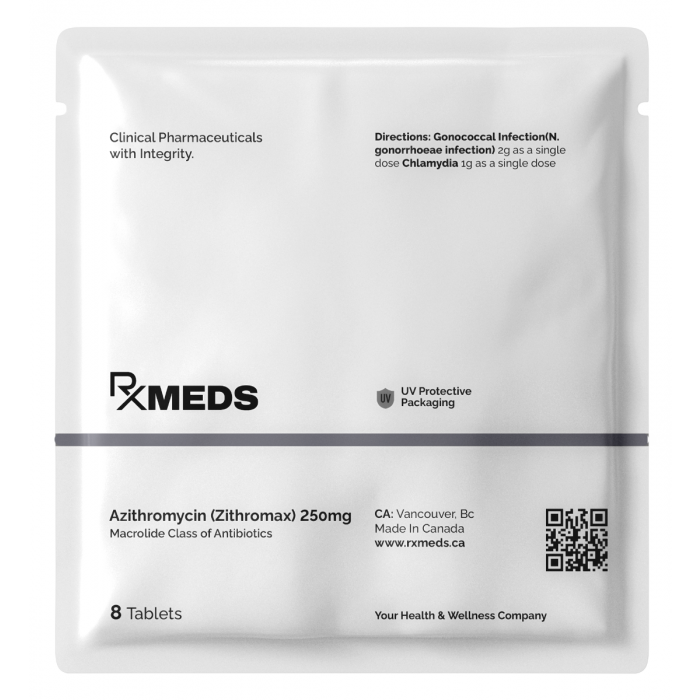Read More
What is Azithromycin (Zithromax)?
Azithromycin (brand name: Zithromax) is a macrolide antibiotic used to treat a wide range of bacterial infections, including respiratory infections, ear infections, skin infections, and sexually transmitted diseases. It works by inhibiting the growth of bacteria, helping to eliminate the infection from the body.
Azithromycin is available in tablet, liquid suspension, and injectable forms.
- Generic name: azithromycin
- Brand names: Zithromax, Z-Pak
- Drug classes: Macrolide antibiotics
Warnings
- Do not use azithromycin if you are allergic to it or other macrolide antibiotics (e.g., erythromycin or clarithromycin).
- Inform your doctor if you have a history of liver or kidney disease, as azithromycin may affect these organs.
- Azithromycin may cause a rare but serious heart condition called QT prolongation. Inform your doctor if you have a history of heart rhythm disorders.
- Consult your doctor before use if you are pregnant or breastfeeding.
Before Using This Product
- Discuss your medical history with your healthcare provider, particularly if you have liver disease, kidney disease, myasthenia gravis, or heart rhythm disorders.
- Disclose any medications or supplements you are taking, as some drugs (e.g., antacids, blood thinners, or other antibiotics) may interact with azithromycin.
How Should I Take Azithromycin (Zithromax)?
- Dosage: Typical dosages for adults range from 250 mg to 500 mg daily, depending on the infection being treated. A common regimen includes a single high dose on the first day, followed by lower doses for the next 4 days (Z-Pak).
- With or Without Food: Azithromycin can be taken with or without food, but taking it with food may reduce stomach upset.
- Finish the Course: Complete the entire prescribed course of treatment, even if symptoms improve, to prevent antibiotic resistance.
What Happens If I Miss a Dose?
- Take the missed dose as soon as you remember, unless it is close to the next scheduled dose.
- If it is almost time for the next dose, skip the missed dose and continue with your regular schedule.
- Do not double doses to make up for a missed dose.
What Happens If I Overdose?
- Symptoms of overdose may include nausea, vomiting, diarrhea, or hearing changes.
- Seek emergency medical attention if you suspect an overdose.
What to Avoid
- Avoid taking antacids containing aluminum or magnesium within 2 hours before or after taking azithromycin, as these may reduce its effectiveness.
- Avoid consuming alcohol excessively, as it may worsen side effects like nausea or stomach upset.
- Avoid skipping doses or stopping treatment early without consulting your doctor.
Azithromycin Side Effects
Common side effects may include:
- Nausea
- Diarrhea
- Stomach pain
- Headache
- Dizziness
Seek immediate medical attention if you experience severe or unusual symptoms, such as:
- Severe allergic reactions (e.g., swelling of the face, lips, or tongue)
- Severe abdominal pain or persistent diarrhea (may indicate C. difficile infection)
- Chest pain or irregular heartbeats
 |
|
